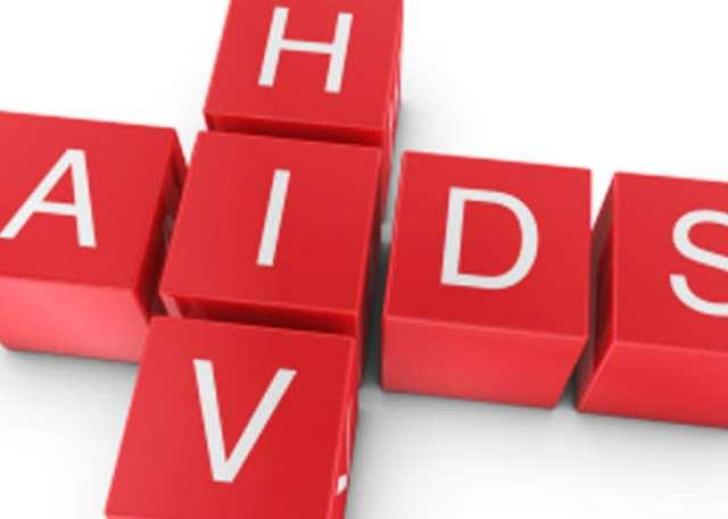News / National
Zimbabwe steps up fight against HIV stigma
27 Jun 2025 at 08:21hrs |
0 Views

Zimbabwe is intensifying efforts to tackle HIV-related stigma following alarming new data indicating a rise in the number of people facing discrimination because of their HIV status.
The renewed call to action was made during a media breakfast meeting held in Harare on Thursday, bringing together government officials, journalists, and development partners. The gathering aimed to highlight the role of the media in combating misinformation and fostering a more inclusive and supportive environment for people living with HIV.
Speaking at the event, Zimbabwe National Network of People Living with HIV (ZNNP+) representative Tonderai Mwareka said stigma remains a major obstacle in the country's fight against HIV.
"We conducted what we call a stigma index study, the first one in 2014, which showed that 65.5% of people living with HIV experience one or more forms of stigma and discrimination," said Mwareka. "A follow-up study done in 2022 showed that this number has increased to 69.7%, which is deeply concerning. The global target is less than 10%, and as a country, we are even more ambitious - we want zero percent. So, we have a lot of work to do."
He also expressed concern over high levels of internalised stigma, with nearly half of people living with HIV - 48.5% - feeling shame or guilt about their status. Among young people, this figure rises to 52%. Mwareka warned that such stigma often leads to social withdrawal, mental health issues like depression, and ultimately, treatment default and increased HIV-related mortality.
"These experiences push people into isolation," he explained. "They stop attending medical check-ups, they default on their medication, and some give up altogether. This increases the risk of complications and death due to advanced HIV."
Minister of Health and Child Care, Dr Douglas Mombeshora, echoed these concerns and underscored the critical role of the media in driving change.
"It is very important that we deal with the issue of stigma among our people living with HIV and AIDS," said Dr Mombeshora. "The media plays a crucial role in informing the public and in reassuring those affected that they should not be ashamed. This is a medical condition like any other. It is through newspapers, radio, and television that we can reach everyone and dismantle the harmful myths surrounding HIV."
He urged media practitioners to help normalise conversations around HIV and amplify stories of hope and resilience.
As part of a broader strategy, the Ministry of Health and Child Care committed to working more closely with the media through training initiatives, access to reliable data, and support for field reporting on HIV-related stories. The goal is to empower journalists to cover HIV issues accurately, compassionately, and with an emphasis on human dignity.
The meeting concluded with a consensus that ending stigma is as critical as providing treatment - and that through collaborative, informed storytelling, Zimbabwe can move closer to achieving its target of zero discrimination.
The renewed call to action was made during a media breakfast meeting held in Harare on Thursday, bringing together government officials, journalists, and development partners. The gathering aimed to highlight the role of the media in combating misinformation and fostering a more inclusive and supportive environment for people living with HIV.
Speaking at the event, Zimbabwe National Network of People Living with HIV (ZNNP+) representative Tonderai Mwareka said stigma remains a major obstacle in the country's fight against HIV.
"We conducted what we call a stigma index study, the first one in 2014, which showed that 65.5% of people living with HIV experience one or more forms of stigma and discrimination," said Mwareka. "A follow-up study done in 2022 showed that this number has increased to 69.7%, which is deeply concerning. The global target is less than 10%, and as a country, we are even more ambitious - we want zero percent. So, we have a lot of work to do."
He also expressed concern over high levels of internalised stigma, with nearly half of people living with HIV - 48.5% - feeling shame or guilt about their status. Among young people, this figure rises to 52%. Mwareka warned that such stigma often leads to social withdrawal, mental health issues like depression, and ultimately, treatment default and increased HIV-related mortality.
"These experiences push people into isolation," he explained. "They stop attending medical check-ups, they default on their medication, and some give up altogether. This increases the risk of complications and death due to advanced HIV."
Minister of Health and Child Care, Dr Douglas Mombeshora, echoed these concerns and underscored the critical role of the media in driving change.
"It is very important that we deal with the issue of stigma among our people living with HIV and AIDS," said Dr Mombeshora. "The media plays a crucial role in informing the public and in reassuring those affected that they should not be ashamed. This is a medical condition like any other. It is through newspapers, radio, and television that we can reach everyone and dismantle the harmful myths surrounding HIV."
He urged media practitioners to help normalise conversations around HIV and amplify stories of hope and resilience.
As part of a broader strategy, the Ministry of Health and Child Care committed to working more closely with the media through training initiatives, access to reliable data, and support for field reporting on HIV-related stories. The goal is to empower journalists to cover HIV issues accurately, compassionately, and with an emphasis on human dignity.
The meeting concluded with a consensus that ending stigma is as critical as providing treatment - and that through collaborative, informed storytelling, Zimbabwe can move closer to achieving its target of zero discrimination.
Source - ZBC
Join the discussion
Loading comments…




























